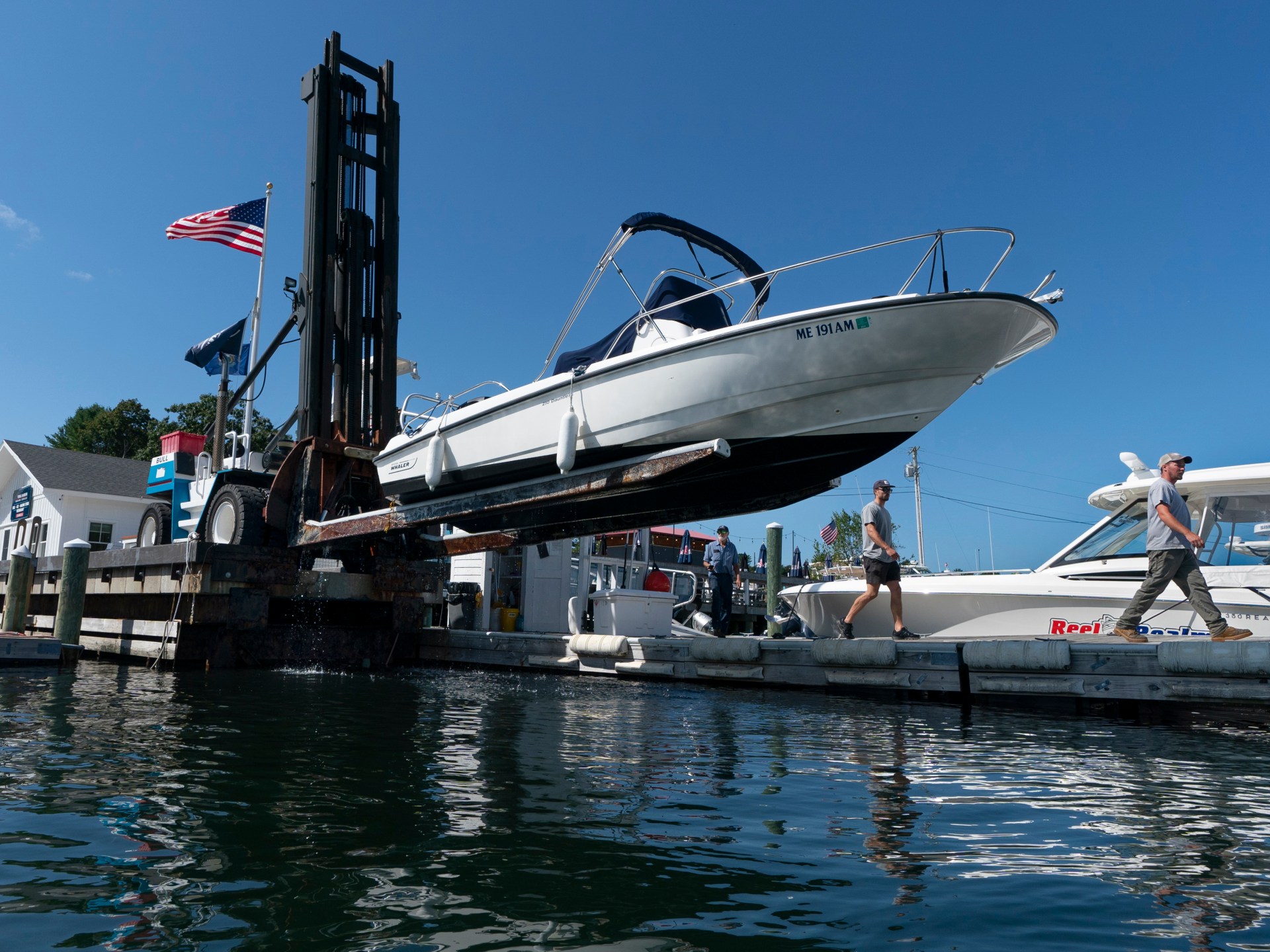Storm expected to bring heavy rain, wind and offshore waves to parts of New England and eastern Canada, forecasters say.
The northeastern United States and Atlantic Canada are bracing for heavy rainfall, strong winds and 6-metre (20-foot) waves offshore as Hurricane Lee churns over the Atlantic Ocean on its way north.
The National Hurricane Center (NHC) said in a Friday morning advisory that Lee was expected to create a storm surge that could cause coastal flooding in parts of New England, including areas in the US states of New York and Massachusetts.
Maine was also under its first hurricane watch in 15 years as Governor Janet Mills declared a state of emergency on Thursday.
“We continue to strongly urge Maine people – particularly those Downeast – to exercise caution and to take steps to ensure they have what they need to stay safe as the storm draws closer,” Mills wrote on social media.
The hurricane watch applied to eastern Maine, while the rest of the state and an area extending south through Massachusetts was under a tropical storm warning.
We continue to strongly urge Maine people – particularly those Downeast – to exercise caution and to take steps to ensure they have what they need to stay safe as the storm draws closer. https://t.co/bXmr35A04A
— Governor Janet Mills (@GovJanetMills) September 14, 2023
Powerful winds and coastal flooding were expected to arrive Friday afternoon in southern New England and spread north.
In parts of Atlantic Canada under wind warnings, “a dangerous storm surge will produce coastal flooding”, the NHC said on Friday. “Near the coast, the surge will be accompanied by large and destructive waves.”
The Category 1 storm has already affected Bermuda, and is set to reach parts of the US that have already seen a deluge of rain, flooding, sinkholes and tornadoes this week.
Although Lee did not contribute to the flooding that hit New England over the past days, it threatened to exacerbate conditions in a region that is already waterlogged.
The Coast Guard and emergency management agencies warned residents to be prepared, and utility companies brought in reinforcements to deal with any power outages.
At Boothbay Harbor Marina in Maine, the community came together to remove boats from the water to keep them out of harm’s way. “It’s a batten-down-the-hatches kind of day,” owner Kim Gillies said on Thursday.
In Canada, authorities warned residents of western Nova Scotia and southern New Brunswick about the risk of power outages and flooding this weekend.
A year ago, the remnants of Hurricane Fiona washed houses into the ocean, knocked out electricity to most of two provinces and swept a woman into the sea.
New Brunswick Minister of Public Safety Kris Austin urged residents to assemble a 72-hour safety kit that included batteries, water, food, medication and a radio.
Harjit Sajjan, Canada’s federal minister of emergency preparedness, said on Thursday that Ottawa was closely monitoring the approaching storm and was “ready to support” the eastern provinces.
I had a constructive conversation with Minister Kris Austin — we are closely monitoring Hurricane Lee, and the Government of Canada stands ready to support New Brunswick and the Atlantic Provinces.
— Harjit Sajjan (@HarjitSajjan) September 14, 2023
On Friday morning, Lee was spinning about 785km (490 miles) southeast of Nantucket, Massachusetts, and moving away from Bermuda, with maximum sustained winds of 140kmph (85mph), according to the NHC.
It was travelling north on a path that could lead to landfall in Nova Scotia, possibly as a tropical storm, forecasters said.
“Little change in strength is expected through tonight. Lee is forecast to become post-tropical and begin weakening by Saturday, but it is still expected to be a large and dangerous storm when it reaches eastern New England and Atlantic Canada,” the NHC said.
